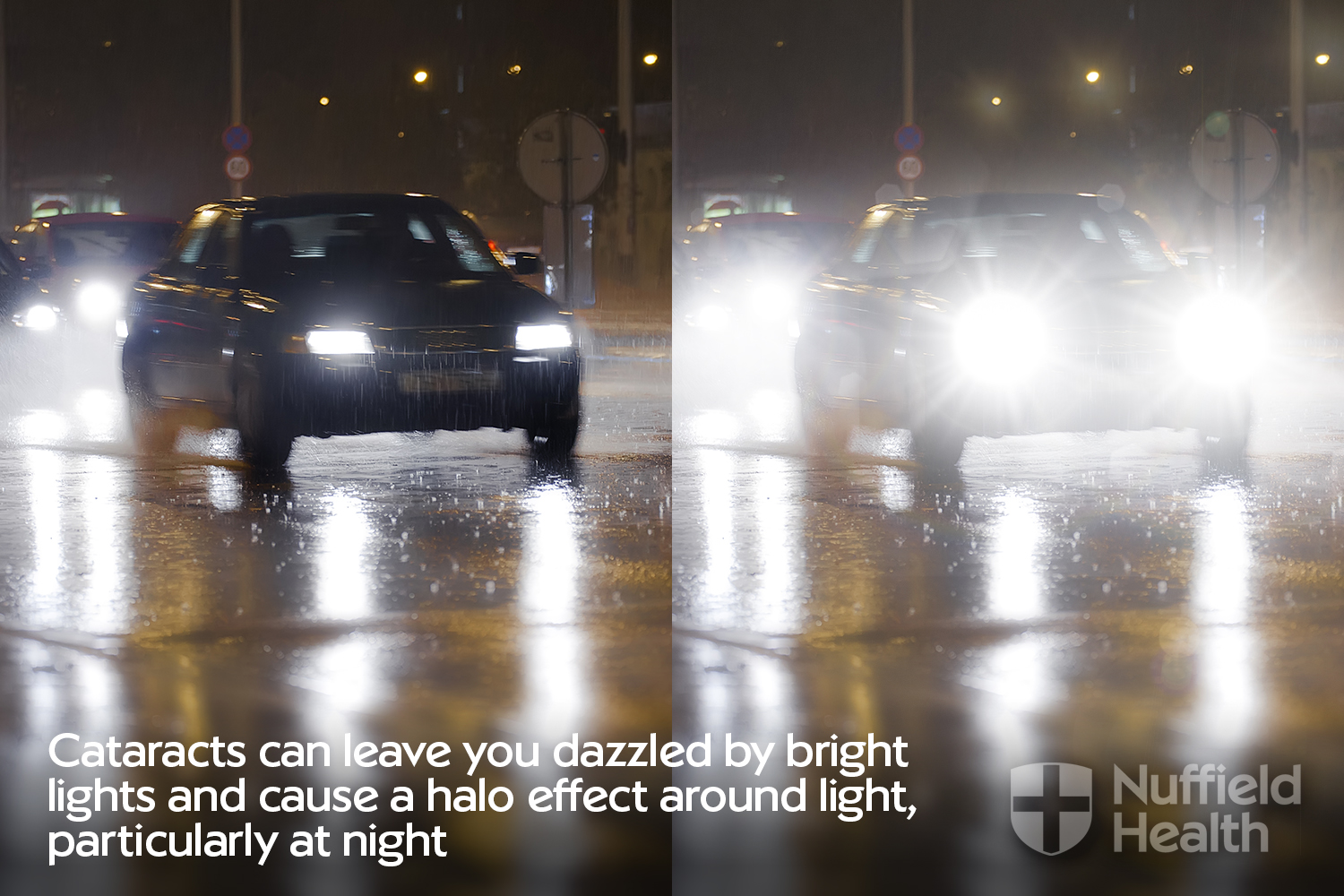4 signs you may have cataracts
- Overview
A cataract clouds the lens inside your eye, affecting your vision in a variety of ways. Many people over 60 years old will have at least some amount present.
Left to develop, cataracts will eventually leave you feeling like you're looking through a frosted window. The problem can be easily fixed with surgery that removes the lens inside your eye and replaces it with a synthetic one to suit your purpose.
Blurry vision

One of the most common symptoms of cataracts is blurry vision. If you wear glasses, they may seem dirty. You may find it difficult to see and drive at night. Don't ignore blurred or misty sight.
Dazzled by light

If car headlights and other bright light leave you dazzled or unable to see clearly for a few moments, cataracts may be to blame.
Colour changes

Cataracts can affect the colour of the world around you, and make things appear faded or washed out. Commonly, objects take on a yellow hue. You may also find it difficult to spot the difference between certain colours, such as navy blue, brown, and black; or blue, green and purple. If you notice these symptoms or are constantly disagreeing with friends and family about the colour of objects, speak to a specialist.
Frequent change in spectacles
As your cataract begins to form, the lens inside your eye increases in size, often resulting in a need to change spectacle prescriptions. As this becomes more frequent, it may be an early sign of developing a cataract.
When should I act?
In the past, cataract surgeons often waited for the cataract to become "ripe" before removing it. Nowadays, with modern surgery the operation is usually done as soon as symptoms with your vision begin to interfere with your daily activities.
Cataract surgery only takes around 20 minutes and you can get back doing the things you love within a few days.
Find out more about cataract surgery.
Last updated Friday 28 May 2021
First published on Friday 19 February 2016

